
Intel’s Core i5 and i7 CPUs continue to be the most popular choice in the realm of processors, and rightfully so. But understanding the distinctions between them is not a straightforward task. Similar to numerous other computer components, there are various models within each tier, which can potentially lead to a somewhat overwhelming selection process.
Contents
- Intel Core i5 vs i7: what’s the difference?
- Should you buy a Core i5 or a Core i7?
- Intel i5 versus i7 on the desktop
- Intel i5 versus i7 on laptops
- What about Core i9?
- Are more cores and threads necessary?
We’re here to break down all the differences between Intel’s Core i5 and Core i7 CPUs, both on desktop and mobile. They’re closer than they were in previous years, and rumor has it that the naming scheme will be replaced outright later this year. But for now, it’s still an important comparison to wrap your mind around if you’re in the market.
Recommended Videos
Intel Core i5 vs i7: what’s the difference?
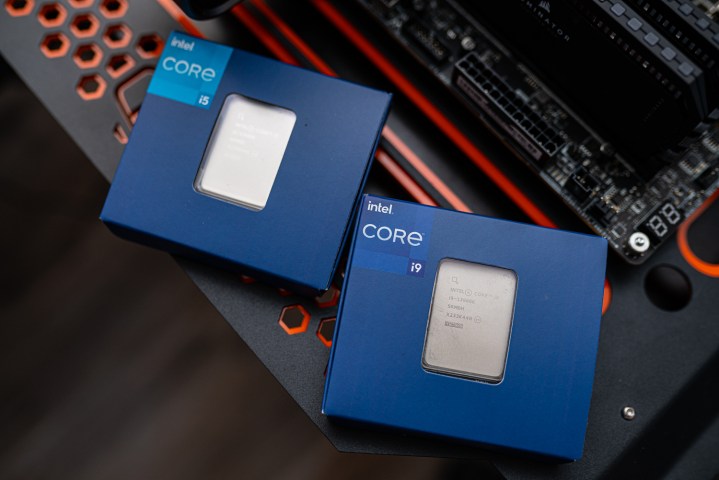
Intel separates its processors into various tiers where the Core i5 and Core i7 sit in the middle between Core i3 at the low end, and Core i9 at the high end. If you’re planning to buy a new PC, there is a good chance that it has a Core i5 or Core i7 as these are the best processors for most people.
Related
- Intel just launched the ‘world’s fastest’ CPU
- Intel may have a monster new CPU coming soon
- I tested Intel’s Core i5-14600K against its cheaper sibling. Don’t waste your money
If we compare with the previous generations, the Core i5 and Core i7 exhibited substantial disparities. However, over the last few iterations, Intel has progressively muddled the distinctions between these two ranges. Core i5 processors have evolved into versatile, dependable workhorses suitable for a broad spectrum of tasks, including gaming, productivity, and a multitude of applications. Their consistent performance and commendable value remain key attributes.
The Core i7 processors exhibit a slight uptick in power as they feature additional cores and accelerated clock speeds compared to their Core i5 counterparts. This makes them an excellent choice for resource-intensive tasks like video editing or CAD. However, it is important to know that the high-end has largely been taken over by processors like the Core i9-13900K, which has relegated the Core i7 range to a liminal space, situated between the value-oriented Core i5 series and the pinnacle performance of the Core i9 lineup.
Should you buy a Core i5 or a Core i7?

The Core i5 processors sit in a sweet spot of price versus performance. For most users, an i5 processor is more than enough to handle day-to-day tasks, and they can even hold their own when it comes to gaming. The most recent i5 chips under the Raptor Lake series, top out at 14-cores on desktop and 12-cores on mobile with boost clock speeds going upwards of 5GHz.
Certain demanding applications, like Adobe Premiere, can be operated on an i5 processor. Of course, the advantages become more pronounced when utilizing an i7, particularly when it comes to gaming. The most recent desktop i7 variants have increased core count and threads, accompanied by turbo frequencies surpassing 5GHz. While an i5 can manage lighter tasks, an i7 proves optimal performance for video and audio editing, solidifying its prowess in these domains.
If you want to play games, browse the internet, and dip your toes into applications like Premiere or Photoshop, you can definitely achieve all of that using an i5 (assuming you have a decent GPU backing it up). Those using professional applications frequently will want to opt for an i7 (or even upgrade to an i9, especially if you’re dealing with motion graphics and running simulations).
Intel i5 versus i7 on the desktop
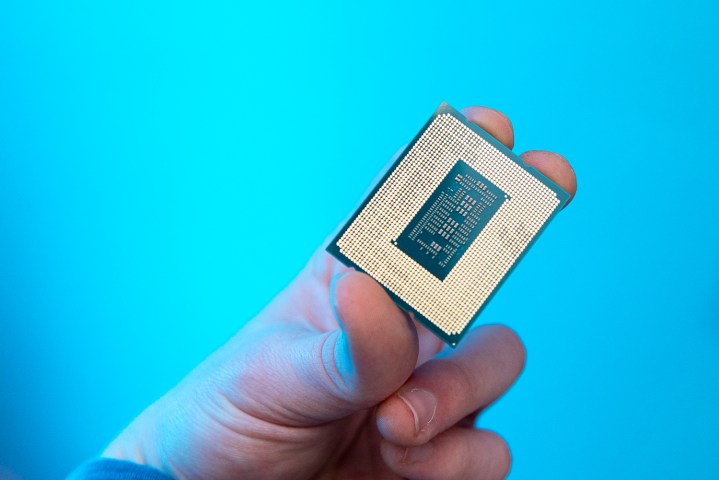
On desktop, Intel’s most recent processors are 13th-gen Raptor Lake chips. There’s a total of nine Core i5 SKUs under the Core i5-13400, 13500, and 13600 models. If you are looking for something that is power-efficient, then the Core i5-13400T is a great choice as it offers a base TDP of just 35W (can go up to 82W) with six performance (P) cores and four efficient (E) cores. The most powerful Core i5 CPU is the 13600K which sits at the top of the lineup. It comes with 14 cores split across six P-cores and eight E-cores. This particular CPU is great for gaming, as well as light video and photo editing, largely due to its boosted cache and 5.1GHz maximum clock speed.
As for the Core i7, there are a total of five options all under the 13700 branding. The Core i7-13700K is highly recommended as it comes with 16 cores, split evenly across P-cores and E-cores, a boost clock speed of 5.4GHz, and a massive Turbo TDP of 253W.
Notably, each of these processers comes in multiple variations. The 13600K, for example, is unlocked for overclocking, while the 13600 is not. The 13400F doesn’t come with integrated graphics. You can deduce the processor’s features from the suffix. You can learn about Intel’s naming scheme in our CPU buying guide.
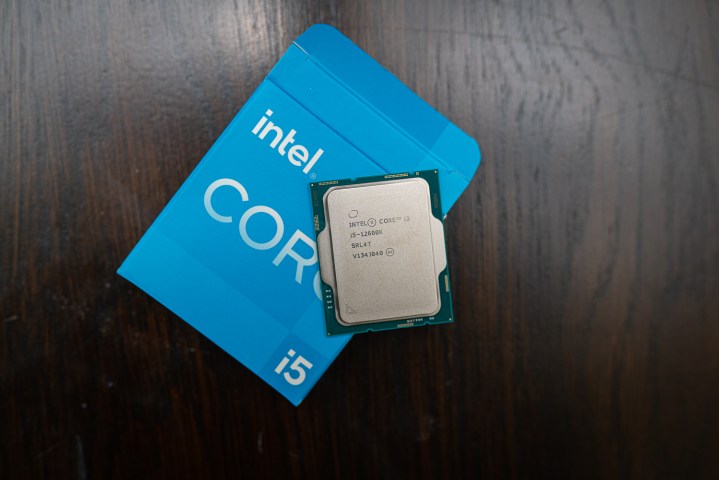
The 12th-gen Alder Lake processors are still a great option, and there are four main options available: the i5-12600K, 12600, 12500, and 12400. Each step down is slightly worse, so the 12600K tops Intel’s current i5 offerings featuring a 10-core configuration and clock speeds of up to 4.9GHz, while the 12400 sits at the bottom.
Like the range of i5s, the Core i7 processors come comes in several variations with different features. If you’re shopping for a desktop, make sure to look for the 12700K. It should be the most readily available chip, and supports overclocking, though the 12700F will be the most affordable and still offers impressive performance.
Out of all the current desktop offerings, we recommend the Core i5-13600K most as it represents an excellent value, with enough power for gaming and light productivity tasks. If you are looking for more performance, the i7-13700K is the way to go, but do remember that both of these chips run quite hot, so you’ll want to use a high-quality cooler. The good news is that 13th-gen processors use the same socket as 12th-gen, but it is best to double-check whether your motherboard supports an LGA1700 socket before upgrading.
Intel i5 versus i7 on laptops
Intel’s 13th-gen Raptor Lake series expands to mobile devices with Raptor Lake-U and Raptor Lake-P for thin and light notebooks, while Raptor Lake-H and Raptor Lake-HX cater to high-performance notebooks.
Unlike the previous generation, Intel has trimmed down its Raptor Lake-P series CPUs. It offers only two Core i5 (1350P, 1340P) and two Core i7 (1370P, 1360P) models. All four processors come with a rated base TDP of 28W and a boost TDP of 64W. The Core i7-1360P, i5-1350P, and i5-1340P are all 12-core (four P-cores, eight E-cores) 16-thread processors, with differences in clock speeds and Iris Xe graphics configuration. The Core i7-1370P is the most powerful Raptor Lake-P CPU, offering two additional P-cores, faster clock speeds of up to 5.2GHz, and a higher cache.
The 13th-gen Raptor Lake-U series, suitable for modern thin and light notebooks, comes with a lower base TDP of 15W going up to 55W. There are a total of three Core i5 and two Core i7 models to choose from. All the Core i5 and Core i7 models come with 10 cores (two P-cores, eight E-cores) and 12 threads but have variation in frequencies with the i7-1365U being the fastest of the lot, with up to 5.2GHz boost clock speeds.
Outside of thin-and-light laptops, Intel has its Raptor Lake-H and Raptor Lake-HX chips. The “H” is for high performance, and these chips are usually seen on gaming and high-end studio laptops. Starting with the H series, there are a total of four Core i5 models — 13600H, 13505H, 13500H, and the 13420H. The entire range is rated to consume up to 95W with the 13600H being the most powerful option featuring 12 cores, 16 threads, and up to 4.8GHz clock speeds. The 13505H and 13500H are pretty much the same chipsets having the same core and thread count as the 13600H, but with slower clock speeds. At the bottom, we have the 13420H, which is a humble-looking octa-core chipset, though it doesn’t offer any good value.
The Core i7 models under the Raptor Lake-H series are the 13800H, 13705H, 13700H, and 13620H. The base TDP is 45W but these can go higher, up to 115W. The 13800H is the top model featuring 14 cores, 20 threads, and up to 5.2GHz clock speeds. Like the Core i5 models, the following two CPUs in the lineup (13705H and 13700H), have the same specifications but only differ in frequencies.
Moving to the mighty powerful Raptor Lake-HX series, there are three models each under the Core i5 and Core i7 series. Sitting at the bottom of the queue is the i5-13450HX having a 10-core (six P-cores + four E-cores) layout with 16 threads and a peak turbo clock speed of 4.6GHz on the performance cores. Moving up the ladder, we have the i5-13500HX and i5-13600HX, both offering a higher core and thread count (14 cores and 20 threads), smarter cache, and higher execution units (EU) on the Iris Xe graphics. As for the Core i7, the 13650HX is almost identical to the i5-13600HX with only minor differences in boost clock speeds and graphics. While the more powerful 13700HX and 13850HX come with 20 cores, 28 threads, and higher clock speeds.

As with desktop chips, Core i7 CPUs tend to be a lot more expensive. If you were buying an XPS 13, for example, a Core i7 CPU can cost as much as $300 to $400 extra in an otherwise identical configuration.
A higher clock speed is better, so if you have the extra cash, a 13th-gen i7 is a great option. The i7-1370P consumes the same amount of power as the i5-1350P while boasting a higher boost clock speed, making it ideal for high-performance thin-and-light laptops. Core i5s are still excellent, though, representing solid midrange performance at a lower power demand.
Additionally, it’s noteworthy to discuss Intel’s previous-generation Alder Lake chips. These chips adhere to the same 10nm fabrication process as the more recent Raptor Lake chips, diverging primarily in terms of clock speeds and core count. While overall computing performance might not significantly differ, choosing a higher-tier Alder Lake CPU over a Raptor Lake option could be a sold cost-saving strategy, allowing you to remain within your budget.
What about Core i9?
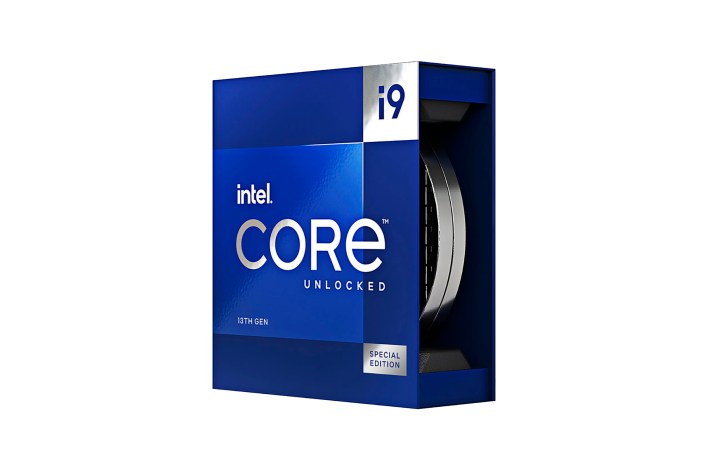
Intel’s Core i5 and Core i7 CPUs, while potent, cater primarily to the mainstream consumer market. The higher-end Core i9 processors from Intel are usually geared toward professionals or the most financially well-off gamers who require top-of-the-line performance. Historically, most chips labeled with this moniker have exceeded the $1,000 price point. However, in 2023, their cost became notably more accessible.
The 13980HX is currently the most powerful chip offered by Intel in the mobile space, packing 24 cores into a laptop CPU, but you’ll only find it in large gaming laptops like the Alienware m18.
For desktop PCs, though, Intel’s most recent offering is the Core i9-13900KS. It is definitely an impressive CPU, offering a big leap in performance compared to the previous generation of Core i9 models. It can be cranked up to 5.8GHz clock speeds with the ability to push even further to 6GHz and is a power guzzler with a rated turbo TDP of 252W.
If you have workloads that can use the extra power of an i7, consider springing for an i9 (especially if you can get a last-gen chip on sale).
Laptops are a different beast. Even the fastest laptop processor can perform poorly in the wrong machine, so it’s important to read individual laptop reviews.
Are more cores and threads necessary?
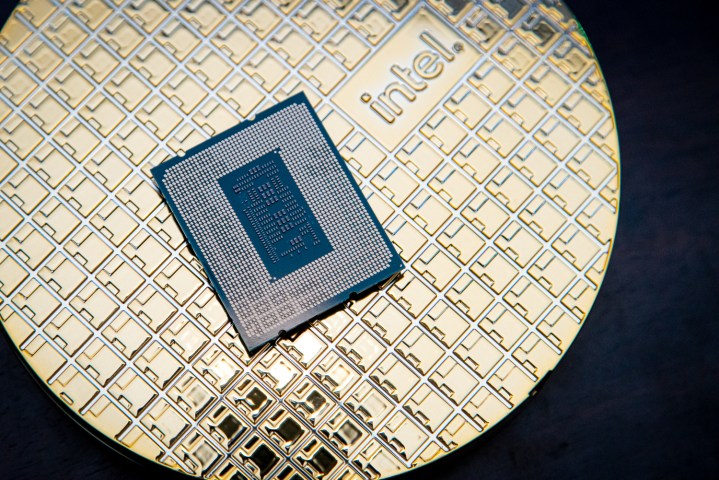
With Intel’s latest lineup, especially for desktop users, the distinction between i5 and i7 processors has narrowed. The current batch of processors enables your system to handle larger volumes of information simultaneously, owing to the increased count of threads and cores. Instead of burdening a single core or thread, the processor distributes the workload across multiple cores. Essentially having more cores and threads means that you get enhanced multitasking capabilities, as the processor efficiently manages diverse tasks.
Computer components are complex; something that seems like a small feature can have a major influence in terms of your device’s output. Some applications are explicitly optimized to capitalize on multiple threats, in conjunction with most file compression and decompression, Adobe Premiere, and Handbrake apps.
There are only a few applications that still use a single thread or core from your computer. Most apps will use all of your processor’s threads and cores, so they run smoothly and efficiently.
If you’re looking for the best option for gaming, you’ll want no less than six or eight cores to get the smoothest graphics and experience no lag. Anything more than that, and the only benefits you’ll see are in production applications such as video editing and transcoding.
Editors' Recommendations
- Nice try, Intel, but AMD 3D V-Cache chips still win
- Intel CPU gaming crashes are causing an uproar
- Apple’s M3 Max appears to keep up with Intel’s top desktop CPU
- It’s the end of an era for Intel
- The iPhone 15’s chip challenges Intel’s fastest desktop CPU — but there’s a catch